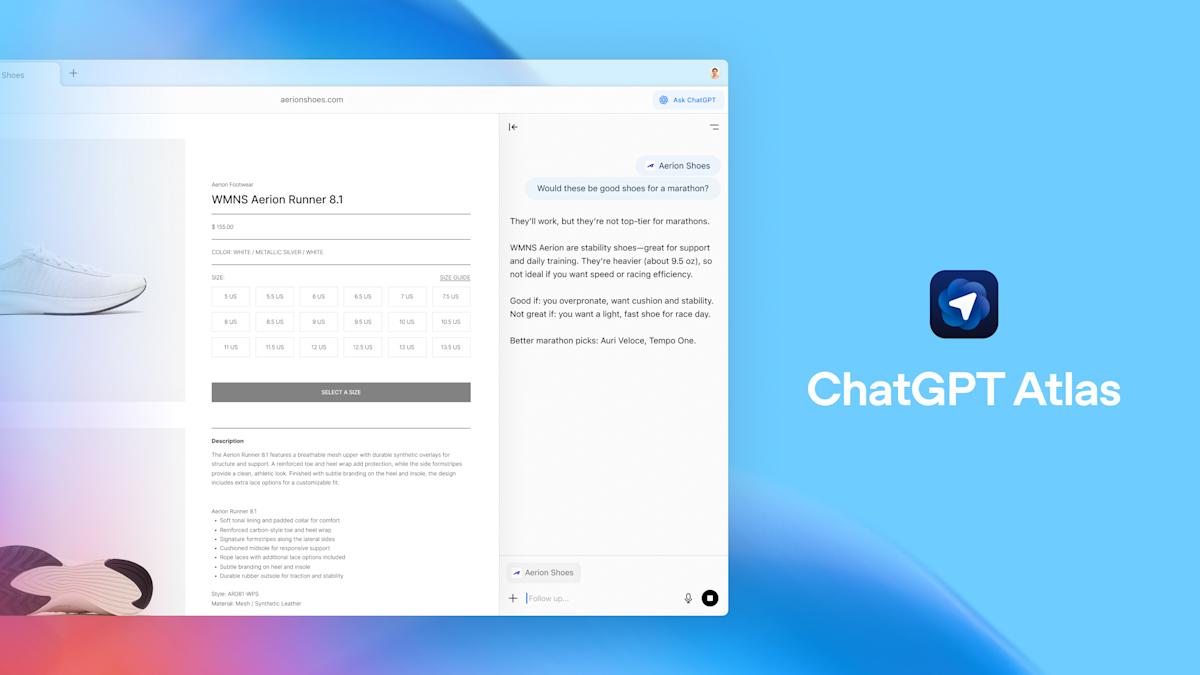
OpenAI’s AI-powered browser, ChatGPT Atlas, launches on macOS today
OpenAI’s long-rumored browser has a name, and you can try it out today — provided you’re an Apple user. ChatGPT Atlas is available to download on macOS, with the company promising to bring it to Windows, Android and iOS soon. Atlas integrates ChatGPT directly within the browser interface, allowing users to engage with the chatbot while they’re surfing the web — no need to jump between different tabs or copy and paste content.
When you select a text field, an icon will appear that allows you to prompt ChatGPT. OpenAI demoed this feature in Gmail where an employee asked the chatbot to polish an email he was writing to a colleague. Naturally, a prompt bar will also appear when you open a new tab, and you can open a sidebar where you can converse with ChatGPT at any time.
The more you use Atlas, the more ChatGPT will “remember” about your preferences. One of the benefits of this is that you’ll be able to more easily filter through your search history. For instance, you can write “re-open the shoes I looked at yesterday,” and ChatGPT will know the specific website you want to look at again. Browser memories are optional, and if you decide to enable the feature, you can manage them through the settings menu, and just like any other browser, you can delete your history or go surf the web using an incognito mode. OpenAI also says it won’t use the content users browse to train its future models.
Atlas also includes an agent mode where ChatGPT can surf the web for you and complete tasks. The feature builds on the Operator tech debuted at the start of the year, and is currently available as a preview within the browser that Plus, Pro and Business accounts can try out. “It can help you book reservations or flights or even just edit a document that you’re working on,” said Adam Fry, product lead for ChatGPT Search, during the livestream where OpenAI announced Atlas.
“Tabs are great but we haven’t seen a lot of browser innovation since then,” OpenAI CEO Sam Altman at the start of the livestream. “This is just a great browser all-around — it’s smooth, it’s quick, it’s really nice to use.”
Rumors that OpenAI was working on its own web browser first surfaced in July. With today’s announcement, the company joins an already competitive market. A number of companies, including Opera and Perplexity, released their own “agentic” browsers earlier this year. Of course, then there’s also Google, which plans to integrate its Gemini AI assistant more deeply into Chrome, the world’s most popular browser, over the coming months.
First Appeared on
Source link






